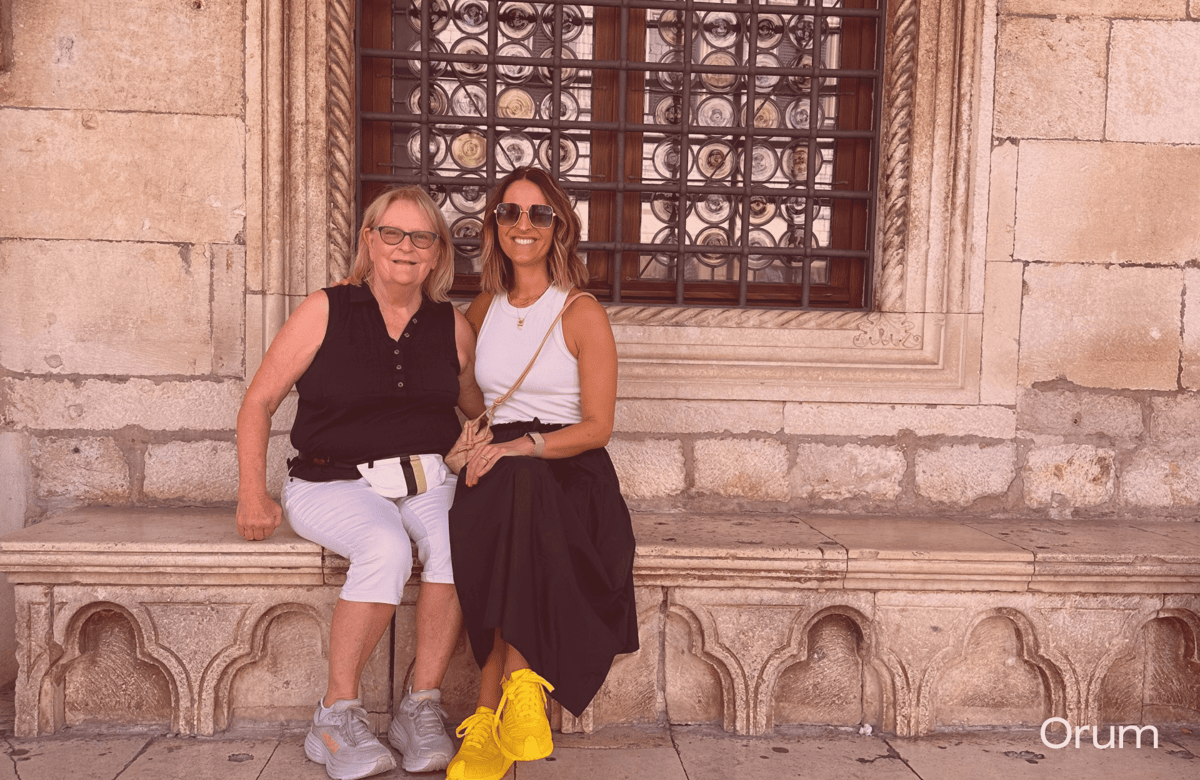
Today, Orum is another year older. Each October I say a bit about Orum’s story and my own, but today, I’m sharing more than ever—because this birthday is particularly special.
At the core, my “why” for founding Orum is three simple words: Time to money. If all payments went through instantly, businesses and individuals alike would have a real picture of their real finances in real time. And we could power a better financial system where everyone has the freedom to build to their potential.
Unfortunately, today, we have plenty of time-to-money flaws in our current system—across every money category. We can order groceries and take-out and car trips on demand, but it still takes 3 to 5 days to access our own money. That’s just plain wrong.
This flaw causes failed ACH transfers that lead to overdraft fees, starting the cycle of using payday loans, credit cards, and predatory lending. This flaw means if I get in a car accident, I’ll have to pay for repair bills up front while waiting who-knows-how-long for an insurance check. This flaw means businesses’ accounts payable and receivable are often out of alignment.
That last example was the beginning of my “why” for founding Orum.
I’m a first-generation American, as my father was a refugee from what was then Yugoslavia. He came over with nothing—certainly not with a credit score—and conventional financial advice just didn’t seem to be applicable to us.
Through a lot of hard work, my parents managed to spin up a marina business. In my mind’s eye, I can still see my dad sitting in front of this big, blue paper ledger, tallying up a bunch of sums. I saw my parents waiting days for customers’ payments to clear so they could write checks to suppliers for payments that also took days to clear—an ongoing loop with no end. I helped them stamp envelopes, hoping with them that an outgoing check would take an extra day in the mail, because if it didn’t, we had a problem.
I had to say goodbye to my dad 10 years ago this month, which is why this Orum birthday is so special. My mother and I had never seen my dad’s birthplace until a few weeks ago when we traveled to Belgrade and other parts of Serbia and Croatia. My dad was born when Yugoslavia was still a single country—and one under Nazi occupation—back in 1943. He and my grandparents escaped from a work camp in 1946, and for years, they lived underground while seeking asylum, waiting for refugee status to come to the U.S.
They desperately wanted to come to the U.S. for a better life, opportunity, and limitless potential.
But the fact is, the time-to-money flaw does indeed create limits—preventing millions of American households from achieving financial security, leading to over $2T of cash sitting idle in checking accounts when it could have been saved or invested simply because access to those funds is impossible at night, on holidays, and over the weekends. It’s hurting the American wallet, small businesses, individual workers, our supply chain, and so much more .
Even in the early days of Orum, I couldn’t get credit as a new business so we turned to a pre-funded card with a well-known fintech bank player. I thought, “How hard could it be?” I found the answer when I was scrambling to move funds to pay a $50 Slack bill at the end of the month. Other people—parents with sick children, truck drivers unable to pay for gas because they’re waiting to be paid, homebuyers trying to get funds into escrow over the weekend—face even more harrowing and stressful situations.
What if, instead, payments went through immediately? Businesses would have a real picture of their real finances in real-time. Workers would walk out of their hourly shift with the money already in their accounts. Receivables would align with payables. My dad wouldn’t have had to spend time doing mental gymnastics to balance his ledger.
And that right there is my “why.”
Every time Orum’s birthday rolls around, I’m amazed and awed at what we’ve achieved so far and hungry to push forward with what’s still to come.
The time-to-money flaw means too many people spend too much time that they don’t have, waiting to access money that belongs to them. Life happens instantly; payments have to, too.
That’s the “why” that keeps me, and Orum, driving forward. Here’s to another year!